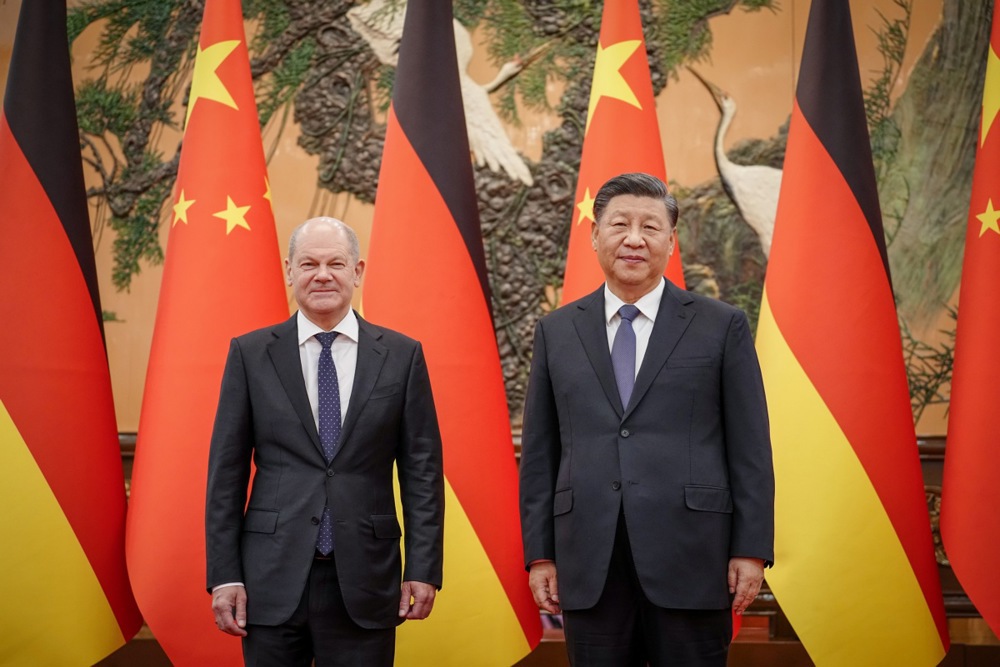Names are news in the media. In politics, names are important messages.
If you look at the names of the top German candidates for the EU Parliament elections, the message is that the EU Parliament is a meaningless place, a dumping ground for politicians who are so disrespected that in Germany they would not even be put up for mayor of a village with 500 inhabitants.
The Christian Democratic Union (CDU) is presenting Ursula von der Leyen, the current Commission President, as its top candidate. That is original – voters are never allowed to vote for the Commission president, so the CDU’s top candidate scores nothing on the ballot.
She is extremely unpopular anyway. Her failures as German defence minister are legendary. Her behaviour in pandemic policy is seen as corrupt. She is the ugly face of the EU: aloof, distant, arrogant. She is not on the poster. The CDU is indifferent to the election.
The governing Social Democratic Party (SPD) party is sending Katarina Barley into the race. Her career as Secretary General of the SPD was a disaster. In the previous EU election, she achieved the worst result in history for the SPD. But that doesn’t matter. The SPD doesn’t care about the election result.
The Free Democratic Party (FDP), also a governing party, is fielding Agnes Strack-Zimmermann, a woman who is no longer tolerated in the party. She is seen as a warmonger against Russia, uses foul language, intimidates critics and wants to denounce them to her employer. The FDP has decided not to vote for her
The Left Party wants the scruffy and mostly dirty Carola Rackete to be elected. In 2019, as the captain of a tugboat, she rammed an Italian police boat that was trying to prevent her from entering the harbour at Lampedusa. “More illegal migration” – that is not a programme for the voters of the socialist party.
In Maximilian Krah, Alternative for Germany(AfD) has a candidate who has been suspended twice by his own group in the EU Parliament for shady dealings. With his whitewashing of the SS crimes, he has upset Marine LePen and Giorgia Meloni, who ensured that the AfD was excluded from the joint EU parliamentary group. The AfD is now rehashing old German prejudices against France and Italy.
Only the new party of left-wing politician Sahra Wagenknecht has a respectable lead candidate. Fabio di Masi is seen as a tough investigator in the legendary corruption scandal about tax evasion in which Chancellor Olaf Scholz is deeply involved.
The top German politicians show what their parties think of the EU Parliament: nothing to little, suitable for getting rid of politicians they can’t stand themselves or don’t want the voters to put up with in real elections.
This may be due to an extremely arrogant disregard for the EU Parliament, in all major parties equally. Even if the EU Parliament overestimates itself, such a disregard for its importance, is not a good thing.
These elections count for nothing in Germany.
It is hoped that the domestic political significance will be transferred to the EU elections, that the supporters of the Green transformation will vote for the Left-Green party, regardless of who represents them in Brussels. The CDU/CSU is hoping to capitalise on the domestic political protest against the ruling traffic light coalition — the three-part coalition of SPD, FDP, and Greens — regardless of the lead candidate.
The SPD has given up on itself, and the AfD is retreating into a frustrated-revolutionary pose of anti-attitude and policy refusal.
This is why names are news. The inability of the German parties to get the country back on a sensible course from Berlin is leading to the extraordinary names in this presidential election.
Germany is currently blocked in domestic politics, caught up in a kind of agony of self-destruction. The EU will have to put up with the Germans. This could lead to a reorientation of the EU at all levels, a change of direction without the Germans and to their own disadvantage. Berlin has fallen.
Roland Tichy is founder and editor of Tichys Einblick (www.tichyseinblick.de) a German-language news outlet





Can Germany escape from Hobbiton? Berlin has had a long respite from the horrors of the twentieth century, but it must now be ready to rejoin the world